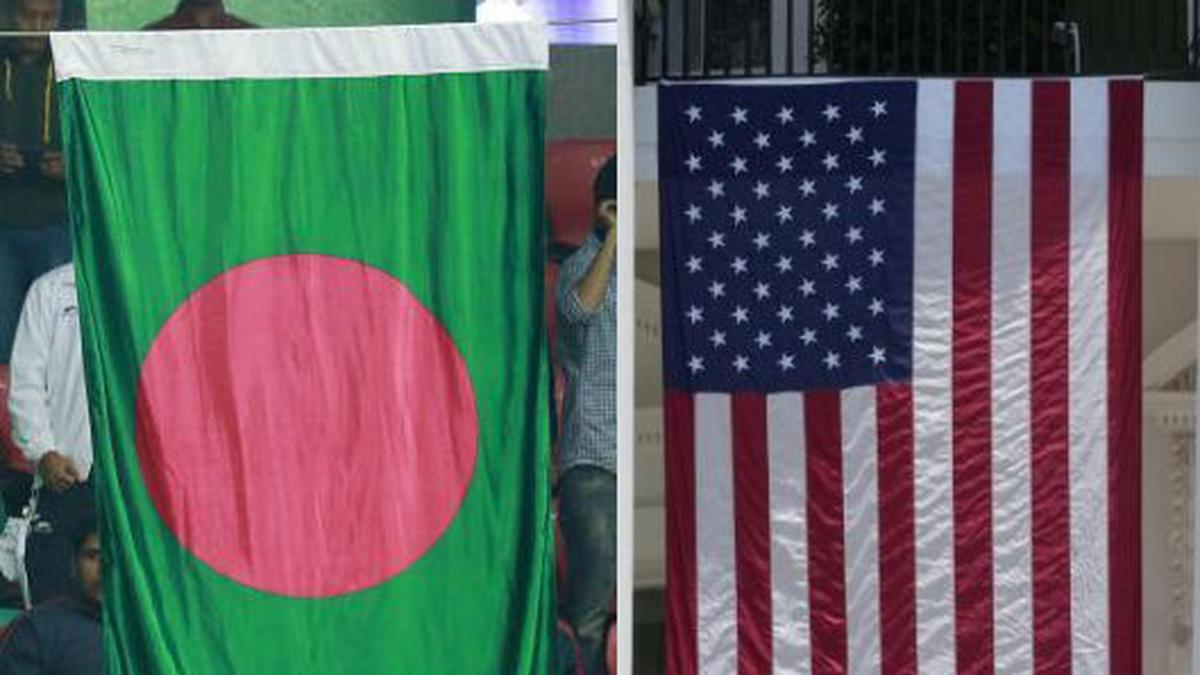
Beneath symbolism and praises, Bangladesh’s ties with U.S. take a tumble Premium
The Hindu
More than a year ago, the U.S. celebrated 50 years of friendship with Bangladesh, feting the South Asian nation’s emergence from the dark days of the Liberation War and its stunning economic transformation in the five decades that followed.
More than a year ago, the U.S. celebrated 50 years of friendship with Bangladesh, feting the South Asian nation’s emergence from the dark days of the Liberation War and its stunning economic transformation in the five decades that followed.
Since 1972, the U.S. has provided more than $8 billion in development assistance to Bangladesh. Washington has partnered with Dhaka to save lives following deadly cyclones and combat terrorism and human trafficking. Most recently, the U.S. provided more than 61 million COVID-19 vaccines. Bangladesh was the largest recipient of U.S.-donated vaccines worldwide.
“That is what friends do,” U.S. Ambassador Peter Haas wrote in an article in April 2022.
Beneath this symbolism and the spectacle of diplomatic camaraderie lurks a fraught relationship between the two countries. And the pivot of the relationship is the national election due in January, 2024. On May 24, Washington announced a coercive visa policy for Bangladesh, asserting that the U.S. will restrict visas for any Bangladeshi, believed to be responsible for undermining the democratic election process in the country.
Analysts said the Biden administration is trying to incentivise Bangladesh, not just the government, but the broader political class to have a free and fair election, so that the U.S. does not have to be put in the position of scaling back its relations with Bangladesh, if it concludes that the election is not free and fair.
“I think that’s where this new visa policy comes into play,” Michael Kugelman, the director of the South Asia Institute at the Washington-based Wilson Center, said in an interview, adding that the trajectory of the relationship will be clearer after the election.
The new visa policy galvanised senior government officials, and also the senior members of the ruling party to engage with Western interlocutors to try to convince them that this time is going to be different and the Awami League is “fully committed to a free and fair election”. That rhetoric is met with a great deal of scepticism both at home and abroad.

The 29th edition of the Conference of Parties (COP29), held at Baku in Azerbaijan, is arguably the most important of the United Nations’ climate conferences. It was supposed to conclude on November 22, after nearly 11 days of negotiations and the whole purpose was for the world to take a collective step forward in addressing rising carbon emissions.










